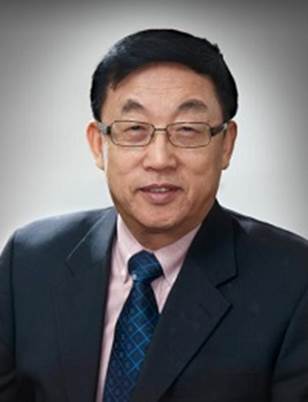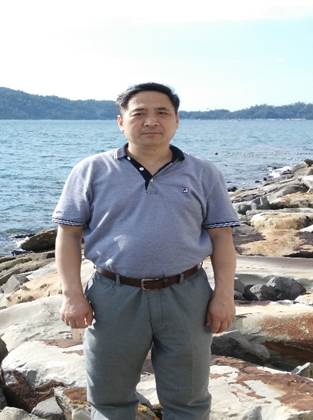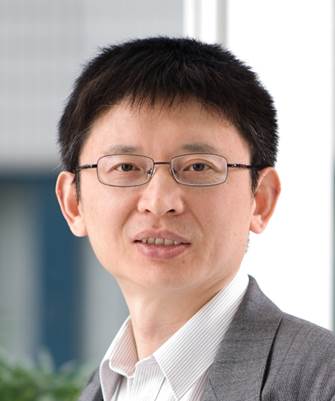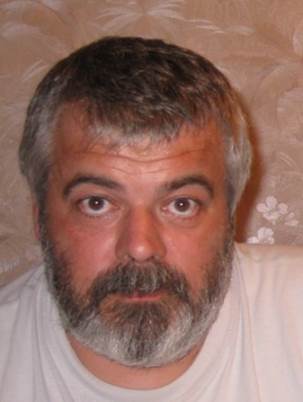CONFERENCE
REGISTRATION
SUBMISSION
|
Plenary Talk I
Title:Smart Optimization Control System for Energy-intensive Equipment
Tianyou Chai, Ph.D.
Professor
Northeastern University, China

ABSTRACT:
China has abundance of mineral resources such as magnesite, hematite and bauxite, which constitute a key component of its economy. The relatively low grade, and the widely varying and complex compositions of the raw extracts, however, pose difficult processing challenges including specialized equipment with excessive energy demands. The energy intensive furnaces together with widely uncertain features of the extracts form hybrid complexities of the system, where the existing modeling, optimization and control methods have met only limited success. Currently, the mineral processing plants generally employ manual control and are known to impose greater demands on the energy, while yielding unreasonable waste and poor operational efficiency. The key way to solve these problems is to make the control systems of energy intensive equipment become CPS. CPS for energy intensive equipment is a smart optimal control system.
This talk presents syntheses and implementations of a smart optimal control system for the energy intensive processing equipment. The talk will focus on three main functions of the proposed smart optimal control system: (i) process control; (ii) operational optimization control; and (ii) operational conditions diagnostics and self-healing control. The design of a novel data-driven dual closed-loop intelligent optimal operational control will be described for realizing these primary functions.
The data-driven dual closed-loop control employs a two-layered structure: (i) an intelligent optimal control layer for identification of optimal set points of control loops which takes functions of target indices associated with energy saving, product yield, product quality and efficiency as optimization index, and the set points as the decision variables; and (ii) a set points tracking intelligent control layer focusing on virtual unmodeled dynamics compensation based controller.
This talk introduces a hybrid simulation system for operational optimization and control of complex industrial processes developed by our team. Simulations to electric magnesium melting furnace for magnesia production industry are used to demonstrate the effectiveness of the proposed method.
This talk also introduces the smart embedding control system of electric magnesium melting furnace developed by our team adopting the novel data-driven dual closed-loop intelligent optimal operational control algorithm proposed. It has been successfully applied to the largest magnesia production enterprise in China, resulting in great returns. `Issues for future research on the smart optimization control system are outlined in the final section.
Prof. Tianyou Chai received the Ph.D. degree in control theory and engineering in 1985 from Northeastern University, Shenyang, China, where he became a Professor in 1988. He is the founder and Director of the Center of Automation, which became a National Engineering and Technology Research Center and a State Key Laboratory. He is a member of Chinese Academy of Engineering, IFAC Fellow and IEEE Fellow, director of Department of Information Science of National Natural Science Foundation of China.His current research interests include modeling, control, optimization and integrated automation of complex industrial processes.
He has published 170 peer reviewed international journal papers. His paper titled Hybrid intelligent control for optimal operation of shaft furnace roasting process was selected as one of three best papers for the Control Engineering Practice Paper Prize for 2011-2013. He has developed control technologies with applications to various industrial processes. For his contributions, he has won 4 prestigious awards of National Science and Technology Progress and National Technological Innovation, the 2007 Industry Award for Excellence in Transitional Control Research from IEEE Multiple-conference on Systems and Control.
Plenary Talk II
Title:Study of Stabilization and Tracking Control for Nonholonomic Systems with Velocity and Acceleration Constraints
Yuqiang Wu, Ph.D.
Professor
Qufu Normal University, China

ABSTRACT:
There are many nonholonomic and underactuated systems in practical engineering, wheeled mobile robots is a typical class of nonholonomic system; bridge cranes, inverted pendulums and surface vessels are underactuated systems. Since these two kinds of systems are respectively subject to the velocity and acceleration nonholonomic constraints, it is very difficult to directly apply the conventional nonlinear control methods in their control designs. Therefore, research on nonholonomic and underactuated systems is of great significance both in theory and practice. Here the considered systems include nonholonomic systems with the one-order velocity constraints and underactuated systems with the second-order acceleration constraints. The application examples include underactuated crane, surface vessel (USV). The stabilization and tracking control are studied for the aforementioned three classes of systems by using backstepping, cascade control method, differential-flatness-based approach, finite-time control technology, nonlinear time-varying method, etc.
Prof. Yuqiang Wu is with Qufu Normal University. He got the PHD degree from the South East University of China in 1994. And he is a visiting scholar in Central Queensland University of Australia and University of Texas at Dallas of America from 1996 to 1999. He is the vice chairman of the Association of Automation of Shandong Province, National model teacher, and the Shandong province Taishan scholar Professor.
His mainly research interesting is the nonlinear control theory and its applications, Including variable structure control, finite time sliding mode control, the control of uncertain nonholonomic systems, the control of underactuated systems.
Plenary Talk III
Title:Fuzzy Controllers are Universal Controllers
Gang Feng, Ph.D.
Professor
City University of Hong Kong, Hong Kong, China

ABSTRACT:
This talk first gives a brief review on fuzzy control. It then discusses the universal fuzzy controller problem for continuous-time multi-input-multi-output general nonlinear systems based on a class of generalized dynamic fuzzy dynamic models. It is shown that this class of generalized dynamic fuzzy models can be used to approximate general nonlinear systems. By using their approximation capability, universal fuzzy controllers for general nonlinear systems are then provided. Finally, some remaining challenges in model based fuzzy control systems are also revealed
Gang Feng received the B.Eng and M.Eng. Degrees in Automatic Control from Nanjing Aeronautical Institute, China in 1982 and in 1984 respectively, and the Ph.D. degree in Electrical Engineering from the University of Melbourne, Australia in 1992.
Professor Feng was a Lecturer in Royal Melbourne Institute of Technology, 1991 and a Senior Lecturer/Lecturer, University of New South Wales, 1992-1999. He has been with City University of Hong Kong since 2000 where he is now a Chair Professor of Mechatronic Engineering. He was also a ChangJiang Chair Professor at Nanjing University of Science and Technology, awarded by Ministry of Education. He has received Alexander von Humboldt Fellowship, the IEEE Transactions on Fuzzy Systems Outstanding Paper Award, the Best Paper Award of IEEE International Conference on Neural Networks and Signal Processing and the Best Theoretical Paper Award in the Second World Congress on Intelligent Control and Automation. He is an author of one research monograph entitled “Analysis and Synthesis of Fuzzy Control Systems: A Model Based Approach”, and over 260 SCI indexed papers including over 100 in IEEE Transactions. His research interests include intelligent systems and control, networked control systems, and multi-agent systems and control.
Professor Feng is a fellow of IEEE. He has been the Associate Editor of IEEE Trans. Automatic Control, IEEE Trans. on Fuzzy Systems, Mechatronics, IEEE Trans. Systems, Man, & Cybernetics, Journal of Systems Science and Complexity, and Journal of Control Theory and Applications.
Plenary Talk IV
Title:Fuzzy Control turns 50: maturity?
Thierry Marie Guerra, Ph.D.
Professor
University of Valenciennes et du Hainaut-Cambrésis

ABSTRACT:
Fuzzy theory is at the heart of Computational Intelligence for 50 years now. Fuzzy control is almost as old as fuzzy sets themselves. Its popularity and acceptance have been, and partly remains, subject to controversy. This talk does not intend to enter the polemic but tries to give some thoughts traveling through the history of fuzzy control. Several overviews are available to the interested audience (Feng 2006, Precup & Helledorn 2011, Guerra et al. 2015) and for general history of fuzzy theory the Lotfi A. Zadeh’s paper “Is there a need for fuzzy logic?” published in 2008.
The talk proposes a comeback through the last 5 decades of fuzzy control: from historical beginnings of fuzzy control with so-called Mamdani approaches (Mamdani 1977) to more recent developments based for example on Takagi-Sugeno (or quasi-LPV) models. The talk will be illustrated through various applications from the metro of Sendaï (Yasunobu & Miyamoto 1985) to various domains including robotics, vehicles and so on; with a special focus on applications through time at LAMIH UMR CNRS 8201 in Valenciennes.
To give a hint of the potential of these approaches, data compiled for the Berkeley Initiative in Soft Computing (BISC, http://www.cs.berkeley.edu/~zadeh/stimfl.html) about patents related to fuzzy logic (therefore larger than control) give the following figures in 2014: number of fuzzy-logic-related patents issued and applied in WIPO (International): 50,999 (USA 22,000; China 25,454; European Union 3,268; Japan 7,100…). However, pioneering works – despite these success stories for applications – suffered from a lack of mathematical properties useful for analyzing closed-loop systems: stability, robustness and performances. Next steps issued from historical approaches can mainly be decomposed into two parts. First of all, most of the techniques used for nonlinear models can be applied to a fuzzy model, which can be seen as a particular case: feedback linearization, predictive control, adaptive control, control based on inverted models… Second approach which appeared also very fruitful was to take profit of the fuzzy structure of the models. Its beginnings correspond to the “Japanese” school (Takagi & Sugeno 1985, Tanaka & Wang 2001).
It is difficult to evaluate the real impact of fuzzy in control theory through all the literature. Nevertheless it exists, two main international journals are directly concerned with: Fuzzy Sets and Systems and IEEE Transactions on Fuzzy Systems, a Technical Committee “Computational Intelligence in Control” (http://tc.ifac-control.org/3/2) from the International Federation of Automatic Control (IFAC) is also devoted to these approaches.
Thierry Marie Guerra was born in Mulhouse, France in 1963. He is currently full professor at the University of Valenciennes et du Hainaut-Cambrésis (UVHC), France. He received his PhD degree in automatic control from the UVHC in 1991 and the HDR in 1999. He is head of the Laboratory of Industrial and Human Automation, Mechanics and Computer Science (LAMIH CNRS UMR 8201) (141 researchers and staff, 145 PhD students and post-docs) http://www.univ-valenciennes.fr/LAMIH/. He is chair of the Technical Committee 3.2 “Computational Intelligence in Control” for IFAC (International Federation of Automatic Control), member of the IFAC TC 7.1 “Automotive Control”, Area Editor of the international journals: Fuzzy Sets & Systems, IEEE Transactions on Fuzzy Systems and IEEE Transactions on Vehicular Technology. His major research fields and topics of interest are, nonlinear control, LPV, quasi-LPV (Takagi-Sugeno) models control and observation, LMI constraints, Non quadratic Lyapunov functions… and applications to powertrain systems (IC engine, electrical motors, hybrid vehicles, fuel cells…) and disabled persons. Webpage information can be found at http://www.univ-valenciennes.fr/LAMIH/membres/guerra_thierry-marie
and citation report at: http://scholar.google.fr/citations?hl=fr&user=ThlBu5kAAAAJ
|



